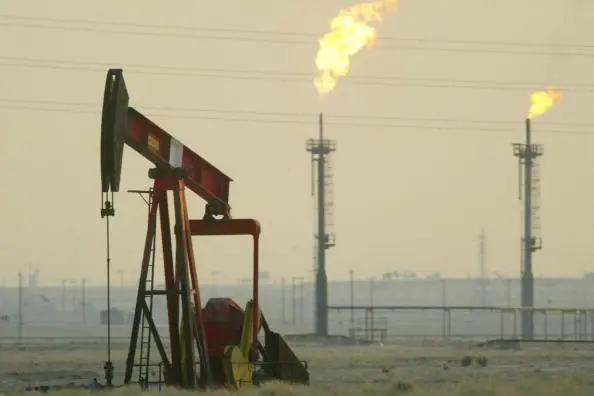PHOTO
Saudi Arabia’s oil sector will remain a drag on growth this year with production cuts expected to continue until at least March 2024.
An Emirates NBD Research update from Chief Economist and Head of Research Khatija Haque said the volume of oil sold by the kingdom will be 4% lower than 2023, weighing on budget revenue.
Oil exports are expected to decline further on weaker global growth, and import demand is forecast to remain strong with ongoing domestic investment.
Haque said the bank had “pencilled in” non-oil GDP growth of 4% again in 2024, partially offset by the oil and gas GDP falling 4%, yielding headline GDP growth of 0.7% in 2024.
She said the bank forecasts 2.0% growth in total expenditure, compared with a -1.9% decline in the official budget.
“Consequently, we expect the budget deficit to widen to -4.3% of GDP this year, versus the official estimate of -1.9% of GDP,” she wrote.
Emirates NBD’s break-even oil price is estimated at approximately $ 104 per barrel in 2024, up from around $87 per barrel in 2022 and $ 97 per barrel in 2023.
Meanwhile, housing is expected to remain the key source of inflation this year, the update continued, along with services prices such as for hospitality and recreation. The bank retains a 2.5% forecast for average inflation in 2024.
Haque said private consumption is expected to remain supported by continued migration to the kingdom as well as the relatively low inflation. Government spending, both consumption and investment, is expected to increase at a slower pace in 2024 than the 9.5% growth in 2023 budget spending.
Fiscal policy is not expected to tighten as the ambitious diversification targets will require significant further investment in the coming years, she said.
Emirates NBD cited MEED projects, saying the start of 2024 shows a significant increase in expected cash flow disbursed for both government and private sector on projects in the kingdom, and a further increase in 2025, expected to support non-oil GDP growth.
Demand for credit is also likely to remain strong with mega-project and strategic sector progress, and with oil-related liquidity likely to remain constrained, overall banking sector liquidity is expected to remain tight.
The budget deficit in 2024 is expected to be financed by debt issuance rather than drawing down reserves, the update concluded.
(Writing by Imogen Lillywhite; editing by Bindu Rai)





















